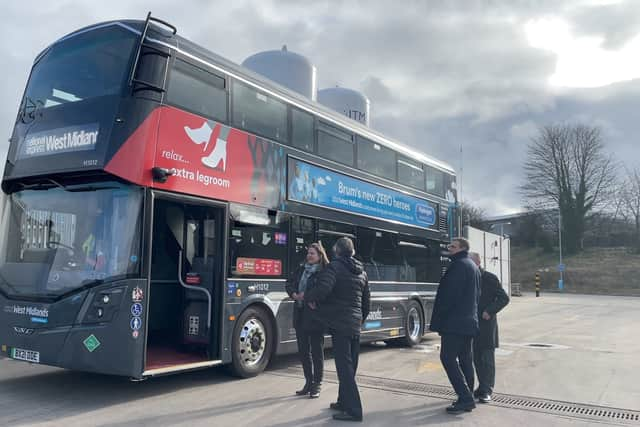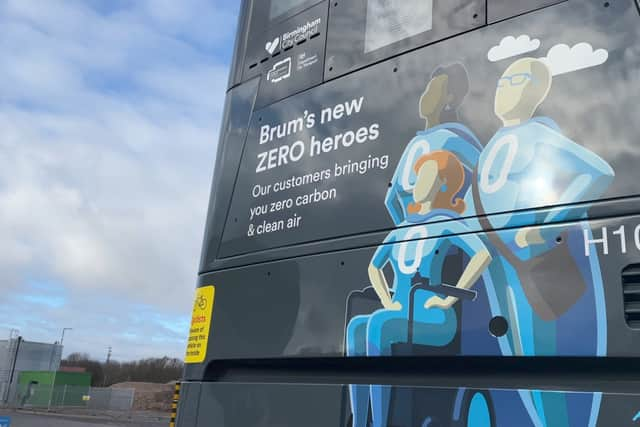Birmingham buses: West Midlands gets £30m grant to launch UK’s largest hydrogen bus fleet
This article contains affiliate links. We may earn a small commission on items purchased through this article, but that does not affect our editorial judgement.
and live on Freeview channel 276
The West Midlands is launching the UK’s largest hydrogen bus fleet.
The region has been awarded £30m by the Department for Transport for the scheme which will see a further 124 hydrogen fuelled buses on the roads.
Advertisement
Hide AdAdvertisement
Hide AdThese are in addition to 20 hydrogen buses already purchased by Birmingham City Council.
Twenty-four of these new vehicles will be articulated tram-style buses set to run on the new Sprint bus priority route along the A34 and A45 between Walsall, Birmingham and Solihull.
The buses are aimed at promoting cleaner and greener bus transport and the funding has come from the Zero-emission Bus Regional Areas (ZEBRA) fund


How do hydrogen buses help the environment?
Hydrogen fuelled buses emit only water vapour so they improve air quality and contribute to a reduction in the bus network’s carbon footprint.
Advertisement
Hide AdAdvertisement
Hide AdTransport for West Midlands (TfWM), which is part of West Midlands Combined Authority, said the fleet is part of the region’s green transport revolution which supports its #WM2041 climate change targets.
They added that Green hydrogen will be used, which is generated from renewable energy, to ensure the scheme is fully zero emission.
What happens next?
The funding tops up private bus company investment in bus fleets over the next three years to accelerate the switch from diesel buses to clean and green vehicles.
TfWM) said it will now work with bus company partners and the wider hydrogen production industry to get the fleet up and running.
Advertisement
Hide AdAdvertisement
Hide AdThe West Midlands is already leading the way with 20 hydrogen double decker buses, bought by Birmingham City Council and operated by National Express West Midlands. It means the region will have 144 hydrogen buses on the streets, the largest fleet in the Western World.
Last year the region secured £50 million Government funding to create the UK’s first All Electric Bus City in Coventry by 2025 – a project which will also deliver cleaner air and lower carbon footprint and see up to 300 fully electric buses operate across the city.


What have TfWM bosses said about the launch in their own words?
Pete Bond, director of integrated transport services with TfWM said: “Buses are the most used form of public transport in the region and this is welcome Government investment in our network. These hydrogen buses, the All Electric Bus City scheme in Coventry and the roll out of electric vehicle charging facilities we are planning shows how the West Midlands is leading the way on decarbonising our transport and making good progress on achieving our net-zero targets.
“Not only is it welcome to support our work to improve the air we breathe, but new modern buses, accompanied by the new bus lanes and priority measures being introduced will offer commuters a reliable and comfortable alternative to the car and traffic congestion. It also presents an incredible opportunity to make the West Midlands a world leader in the new hydrogen economy”
A message from the editor:
Advertisement
Hide AdAdvertisement
Hide AdThank you for reading. BirminghamWorld is Birmingham’s latest news website, championing everything that is great about our city - reporting on news, lifestyle and sport. We want to start a community among our readers, so please follow us on Facebook, Twitter and Instagram and keep the conversation going
Comment Guidelines
National World encourages reader discussion on our stories. User feedback, insights and back-and-forth exchanges add a rich layer of context to reporting. Please review our Community Guidelines before commenting.
